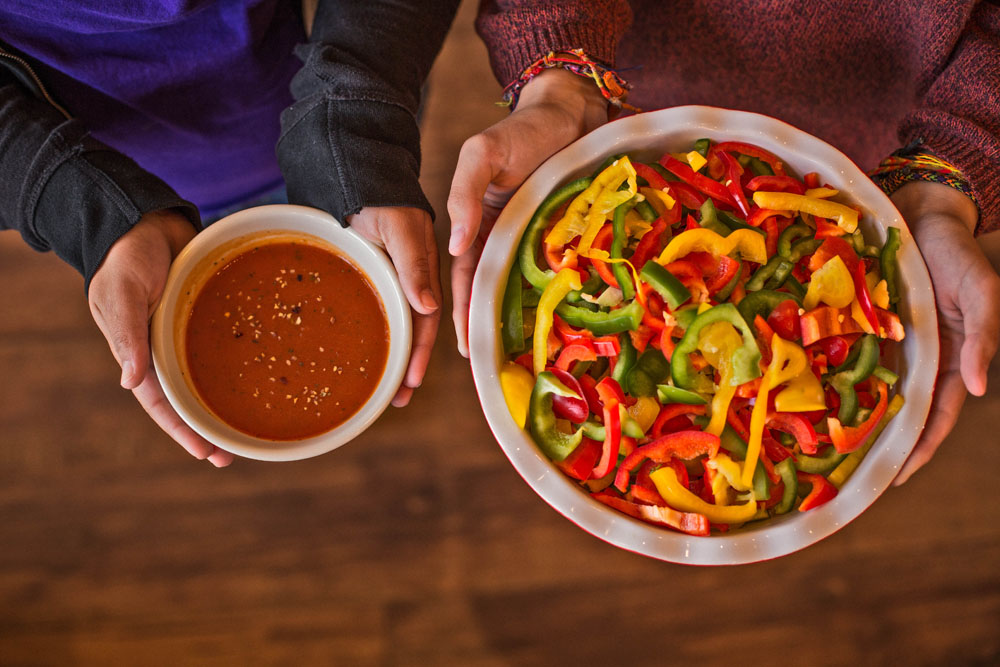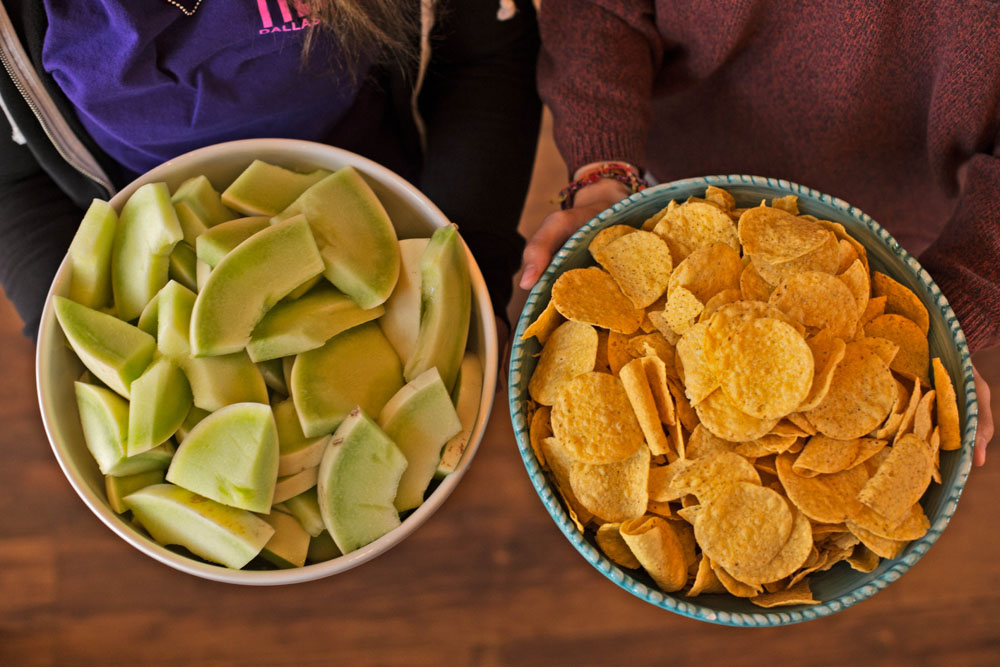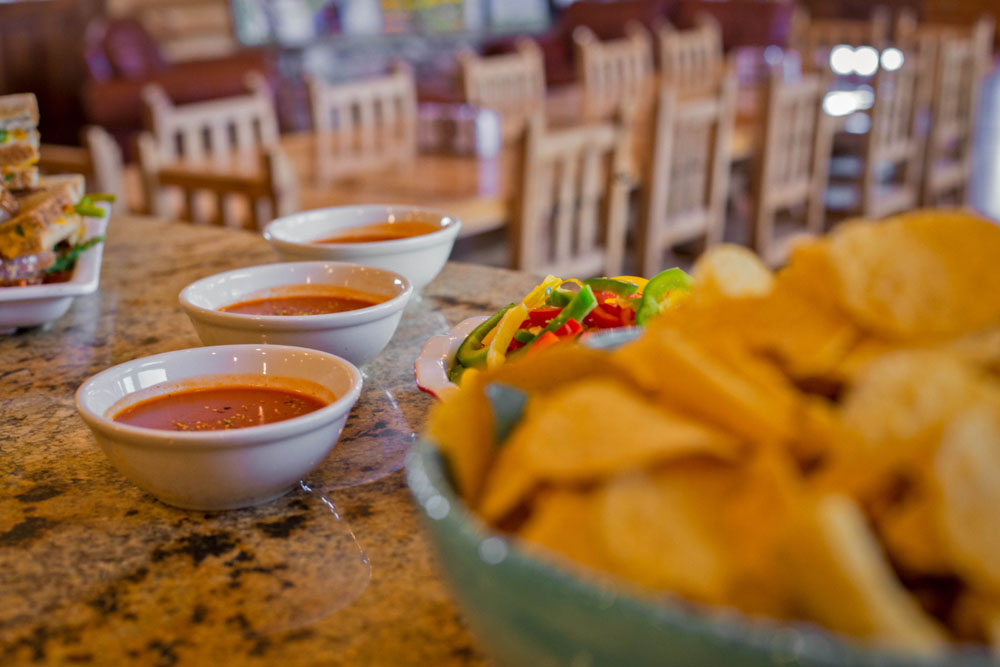Nutritional Therapy
Discovery Ranch’s integrative approach to mental health includes addressing the dietary needs of our students--we believe that the two of them are inextricably linked. Research reveals a direct link between diet and mood, and the food your teen eats affects their mood, behavior, and brain function. Many mental health concerns stem from poor self-care related to inadequate nutrition such as under or overeating. What teens eat and how it affects their bodies also plays a factor in body and personal image.

On-Site Nurse and Professional Chef
Discovery Ranch’s nurse and head chef ensures that our students are eating balanced diets and are learning how to continue healthy eating once they return home. We help our students function better mentally and emotionally by addressing their physical needs, which is one of the crucial foundations of health.
Balanced Diet, Balanced Living
Discovery Ranch brings balance back to our students' lives by promoting a healthy lifestyle based on wellness. Wellness is a balance of physical, mental, spiritual, social, and emotional elements in life and making positive choices in these areas. We integrate Dialectical Behavior Therapy (DBT) concepts of mindful eating in each teen’s life to develop patterns of healthy eating and to prevent a lifestyle of ongoing dieting. Mindful eating helps teenagers bring balance back into their lives regarding their relationship with food and their body.
Sample Menu
Monday
- Breakfast: Cold Cereal, Bacon,Yogurt
- Lunch: Sack Lunches- P&B Sandwiches, Chips, Cheese Stick and Chocolate Chip Cookie
- Dinner: Grilled Barbeque Chicken, Roasted Corn and Peppers, Garden Salad
Tuesday
- Breakfast: French Toast, Sausage, Yogurt
- Lunch: Mango Fruit Salad with Roll
- Dinner: Pork Chile Verde, Rice, Garden Salad
- Vegetarian: Tofu Chile Verde


Wednesday
- Breakfast: Sausage & Egg Croissant Sandwich, Yogurt, Cereal Bar
- Lunch: Tuscan Chicken with Pasta, Garden Salad
- Dinner: Buttered Chicken, Rice, Garden Salad, Brownie
Thursday
- Breakfast: Bagels, Scrambled Eggs, Yogurt, Sausage
- Lunch: Nacho Bar, Garden Salad
- Dinner: Popcorn Shrimp Tacos
- Vegetarian: Lentil and Corn Tacos
Friday
- Breakfast: Oatmeal Bar, Bacon, Yogurt
- Lunch: Pepperoni Pizza, Watermelon, Garden Salad
- Dinner: Chicken Cordon Bleu with garden salad
- Vegetarian: Breaded Eggplant
Saturday
- Breakfast: Cereal or oatmeal in the Cabins
- Lunch: Chicken Enchiladas with garden salad
- Dinner: Chicken Salad Croissant Sandwiches with garden salad


Sunday
- Breakfast: Cereal or oatmeal in the Cabins
- Lunch: German Pancakes with side of fruit
- Dinner: Hamburgers, Pasta Salad, Garden Salad
Cabin Snacks
- Whole fruits - apples, bananas, oranges
- Cheese stick
- Trail mix packets
- Peanut Butter crackers
- Apple Sauce
- Milk, Soy Milk, Almond Milk
Get to Know Your Nutritional Team

Sam Slade

Sam Slade
Nutrition Director
